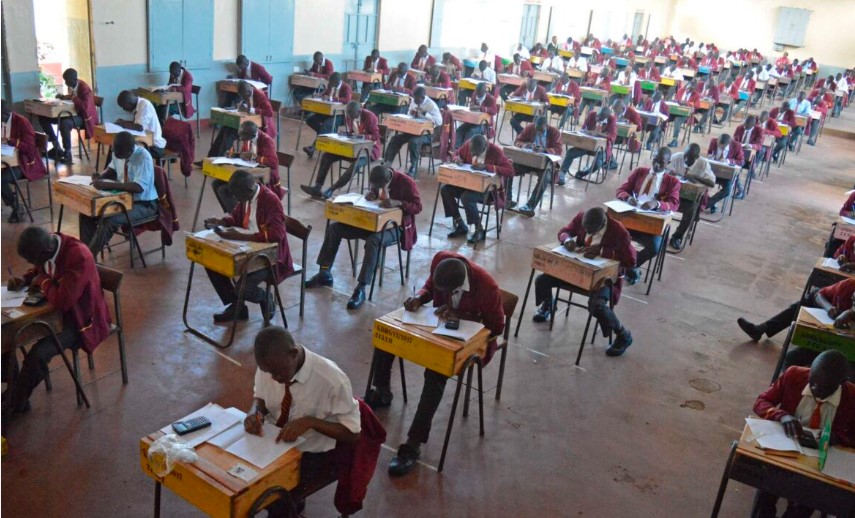Kenyan children are being deprived of a quality education due to corruption in textbook procurement, and it is time the rot was confronted head-on. The government’s ambitious program to supply textbooks to all public primary and secondary school learners on a one-to-one ratio was bold and commendable. It promised to end inequality in access, standardise learning and empower every child with the same resources, regardless of background.
Yet what should have been a national milestone has been hijacked by cartels, shadowy publishers and complicit officials. Instead of guaranteeing quality learning, the current procurement system is producing mediocrity, while credible publishers with decades of experience are being elbowed out.
The Kenya Institute of Curriculum Development (KICD), which vets and ranks textbooks, presides over a process that is opaque and inconsistent. The official procedure is that publishers submit bids, books are vetted, and the two lowest bidders qualify to supply nationally. On paper, this looks efficient. In practice, it reduces knowledge to a price tag, placing quality at the mercy of cost-cutting, manipulation and political patronage.
Some publishers who invest in expert writers, rigorous research and quality production find their well-crafted books rejected in favour of cheaper, inferior ones. Frustrated by corruption and lack of transparency, some established publishers have walked away altogether. Their withdrawal is not just a business loss – it is a blow to millions of learners now deprived of well-researched, high-quality textbooks that could make the difference between average and excellent performance.
In their place, we see the alarming rise of briefcase publishers—firms with no history of producing educational materials but with deep political connections. Often set up overnight, these outfits lack expertise in pedagogy, authorship or large-scale distribution. Yet they somehow walk away with multimillion-dollar contracts. The result is predictable: shoddily produced, error-filled and sometimes plagiarised books handed to children as learning material. This is not just embarrassing; it is an unforgivable betrayal of the Kenyan child.
The report calls for urgent and radical reform. First, the vetting criteria at KICD must be overhauled. A procurement model that prioritises the lowest bidder is not well-suited for roads and bridges, but rather for education. Textbooks are not cement bags; they are intellectual investments. Producing quality requires paying for expert writers, peer review, fact-checking, editing and durable printing. These cannot be slashed away without damaging the end product.
Every textbook must undergo rigorous evaluation by independent subject experts from universities, experienced teachers and curriculum specialists with no vested interests. Their reports should be published openly for public scrutiny. Sunlight is the best disinfectant, and transparency the only way to restore trust.
READ ALSO:
How a school principal should handle court case involving school boundaries
Second, the government must set strict eligibility rules. Any publisher bidding should demonstrate a proven track record of producing educational materials, evidence of qualified authors and editors, and the capacity to print and distribute at scale. Fly-by-night firms that appear during tender season should be barred outright. The education of millions of children cannot be entrusted to opportunists whose only expertise lies in greasing palms.
Third, genuine publishers who have invested in Kenya’s education sector for decades must be given the respect they deserve. Their withdrawal is a tragedy that weakens the system. Restoring their confidence means fairer assessments, transparent results, and involving them more directly in curriculum development. The government should be a partner, not a gatekeeper that pushes away those with real capacity to deliver.
Ultimately, the textbook scandal mirrors Kenya’s broader governance problem: corruption infiltrating every sector, from roads to healthcare and now into the very books that shape young minds. But here, the stakes are higher. If we cannot protect the integrity of our children’s education, then we are jeopardising our nation’s future.
The government must draw a firm line. Parliament should legislate clear quality benchmarks for textbook procurement. The Auditor-General must audit every tender cycle at KICD. Tender results and evaluation reports should be made public in full. Independent oversight is non-negotiable.
We must remind ourselves: textbooks are not mere commodities. They are vessels of knowledge, tools of empowerment and lifelines for millions of learners. Compromising their quality for corruption and patronage is to sabotage Kenya’s future deliberately. The time for half-measures is over.
If the government is serious about raising a generation of critical thinkers, innovators, and leaders, it must take decisive action to reform textbook procurement. Anything less would be a betrayal of our children—and history will not forgive us for it.
By Ashford Kimani
Kimani is the convenor of the first National Booklisting Colloquium and a practising classroom teacher.
You can also follow our social media pages on Twitter: Education News KE and Facebook: Education News Newspaper for timely updates.
>>> Click here to stay up-to-date with trending regional stories
>>> Click here to read more informed opinions on the country’s education landscape
>>> Click here to stay ahead with the latest national news.






